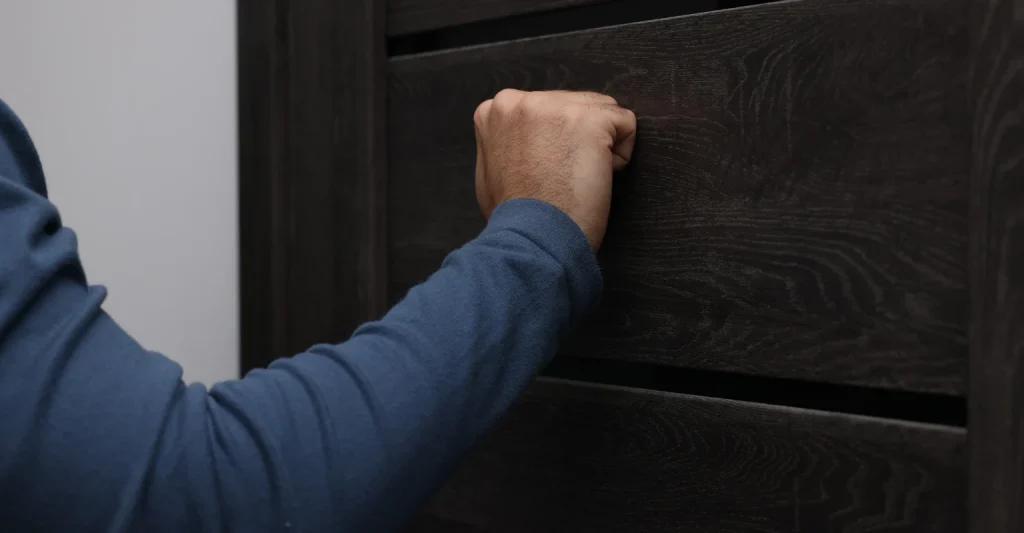Introduction to Credit Bureau Collection Phone Harassment
If Credit Bureau Collection Services (CBCS) is calling you repeatedly, making threats, or contacting people around you, federal law gives you tools to make it stop. This page focuses on real solutions, not fluff, what the law allows, what crosses the line, and what to do immediately.
Who Is Credit Bureau Collection Services?
Credit Bureau Collection Services, Inc. (CBCS) is a third‑party debt collection agency that collects debts on behalf of creditors.
| Company Detail | Information |
|---|---|
| Company Name | Credit Bureau Collection Services, Inc. (CBCS) |
| Business Type | Third-party debt collection agency |
| Years in Business | Founded in 1929 |
| Industry | Debt Collection / Accounts Receivable Management |
| Primary Locations | Ohio, Florida (operations may vary by account) |
| Phone Numbers Used | Multiple toll-free and local numbers (varies by consumer account) |
| Role | Collects debts on behalf of original creditors |
| Regulation | Subject to the Fair Debt Collection Practices Act (FDCPA) and applicable U.S. state laws |
CBCS is a legitimate company, but legitimacy does not exempt any collector from following federal consumer‑protection laws.
Credit Bureau Collection Services Phone Numbers
Consumers report calls from numbers including (not limited to):
- 877‑886‑7331
- 313‑499‑0046
- 800‑233‑6134
- 800‑649‑0690
- 888‑727‑8819
- 877‑405‑4706
- 866‑747‑4324
Calls may come from other numbers as well. The number alone does not determine legality—the conduct does.
What To Do Immediately If You’re Being Harassed

1. Do Not Panic or Pay Right Away
You are allowed time to verify the debt. Paying without verification can create bigger problems.
2. Request Debt Validation (In Writing)
Within 30 days of first contact, you can demand written proof showing:
- The amount owed
- The original creditor
- That CBCS has authority to collect
3. Document Everything
Keep a simple log:
- Date and time of calls
- Phone numbers used
- What was said
- Voicemails or messages received
4. Send a Cease‑Communication Letter (If Needed)
You can legally tell a collector to stop calling you. After receiving it, they may only contact you to confirm they will stop or to notify you of specific legal action.
5. Review Your Credit Reports
Check all three bureaus for errors. Dispute anything inaccurate in writing.
If You Can’t Afford to Pay!
You still have options:
- Payment plan: Ask for terms you can realistically meet
- Settlement: Some collectors accept less than the full balance
- Professional guidance: A consumer‑rights attorney or certified credit counselor can help you decide what makes sense
Be aware that settlements may affect your credit and, in some cases, taxes.
Lawsuits & Legal Records (Important Context)
Public federal court records show that Credit Bureau Collection Services has been named as a defendant in consumer lawsuits over the years, often involving alleged violations of federal consumer‑protection laws.
A filed lawsuit or complaint does not automatically mean wrongdoing. Outcomes depend on evidence, procedure, and court rulings. Verified court records should always be reviewed through official federal sources.
Your Rights Under Federal Law
If a debt collector violates the FDCPA:
- You may recover up to $1,000 in statutory damages
- The collector may be required to pay your attorney’s fees and costs
- You can file complaints with federal regulators
When to Get Legal Help
Consider speaking with a consumer‑rights attorney if:
- Calls continue after you request they stop
- You are threatened with legal action that doesn’t make sense
- Your credit report is being harmed by inaccurate reporting
Many consumer‑rights cases cost nothing upfront because the law allows fee recovery.

ABOUT CONSUMER RIGHTS LAW FIRM, PLLC
CONSUMER RIGHTS LAW FIRM, PLLC specializes in helping clients who are facing any form of harassment from debt collectors. Contact a legal professional to stop debt collection harassment from Credit Bureau Collection Services. Our office has been assisting consumers since 2010, and we have an A+ rating with the Better Business Bureau.
📞Call us now for immediate assistance
Here are a few success stories from some satisfied consumers:
👉 “What an amazing experience I had with Consumer Rights Law firm. I kept getting constant calls from a debt collector who was asking for someone I didn’t know. After explaining over and over, I was not the person they were looking for, The calls continued, it became frustrating and very annoying. I came across this firm and just called to talk to someone to see how I could get the calls to stop. I spoke to a gentleman who was very professional and very helpful. Not only did they get the calls to stop immediately, but they were also able to put some money in my pocket. Here’s the best thing: it cost me nothing for them to help me. They come highly recommended. Thank you, Consumer Rights” – Sean A.
👉 “I had the pleasure of dealing with Consumer Rights Law Firm PLLC on two separate occasions. The staff was courteous, helpful, and well-informed about the collection agencies involved. Thanks to their support, the harassment calls stopped, and I even received compensation. I highly recommend this firm to anyone facing similar issues—I’m a very satisfied customer.” – Dencia G.
👉 “Dealing with harassment? I would strongly recommend the Consumer Rights Law Firm. Their team was professional, knowledgeable, and clear about my rights throughout the process.” – Theresa M.
FAQs
What is debt collection harassment by Credit Bureau Collection Services?
Debt collection harassment includes excessive calls, threats, and misleading tactics that violate FDCPA rules enforced against agencies like CBCS.
Is Credit Bureau Collection Services a legitimate company or a scam?
CBCS is a legitimate company in operation since 1929 but has faced numerous consumer complaints and federal lawsuits over its practices.
What are my rights under the FDCPA when contacted by Credit Bureau Collection Services?
You have the right to receive written notice, dispute the debt, and protection from abusive, misleading, or excessive contact methods.
How can I identify signs of harassment from CBCS or other debt collectors?
Signs include excessive calls, false debt claims, threats, workplace contact, and ignoring your rights under the FDCPA.
What should I do if the debt claimed by CBCS isn’t mine?
Request a debt validation letter, review your credit report, and dispute the debt in writing to protect your rights.
Can CBCS contact my employer about my debt?
Debt collectors may only contact your employer under strict conditions and cannot disclose your debt to them or others unlawfully.
What steps should I take before talking to CBCS on the phone?
Know your rights, verify the debt, record communications, and don’t give personal or financial information unless the debt is verified.
What are my options if I can’t afford to pay the debt CBCS claims I owe?
You can negotiate a payment plan, consider debt settlement, or consult a credit counselor or attorney for further guidance.
How can I stop harassment from CBCS and protect myself legally?
Document all communications, file an FTC complaint, and consult a consumer rights attorney to enforce your legal protections under FDCPA.
What help does Consumer Rights Law Firm PLLC offer against debt collection harassment?
They stop harassment, file lawsuits if necessary, often recover compensation, and offer legal services at no upfront cost to clients.







